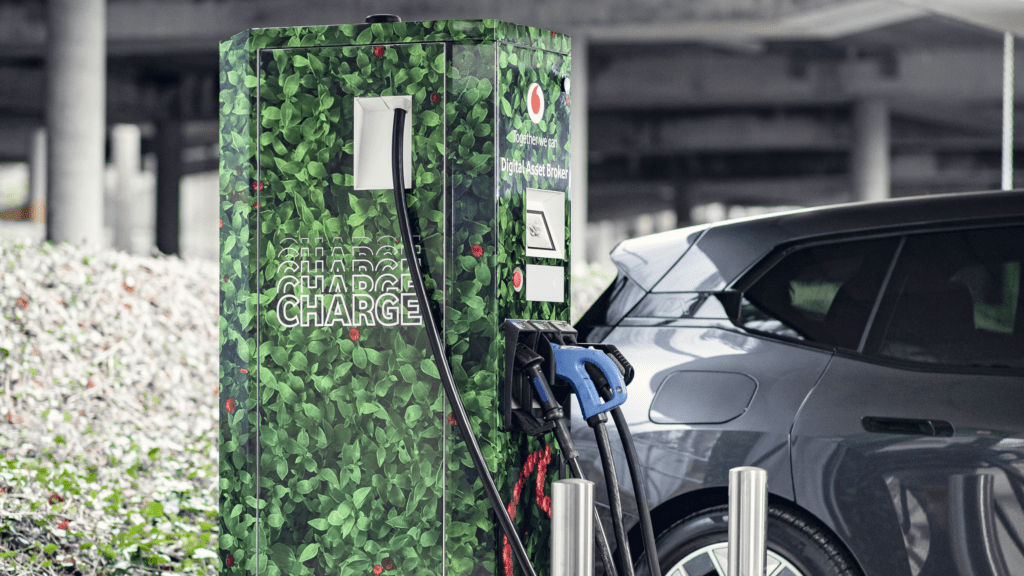
Drawing on the strength of its Internet of Things (IoT) platform – one of the world’s largest with more than 140 million connections – the new platform, called Digital Asset Broker (DAB), will help Vodafone customers benefit from the new ‘Economy of Things’. This is a world in which businesses across multiple industry sectors can transform physical goods into tradable digital assets which can compete in new disruptive online markets via the platform.
Today, most connected devices and sensors collect and send information via the Internet. The new ‘Economy of Things’ platform from Vodafone goes beyond that. It allows verified connected devices, vehicles, smart street furniture and machines to transact seamlessly and securely without human intervention, but with full owner control.
The number of connected devices is predicted to grow globally to 30 billion by 2025. With Vodafone’s platform and geographical scale, rather than businesses building their own complex system, any device is assigned a unique digital identity. It can then communicate and transact securely with other devices using wallet and payment technology secured by the mobile SIM.
In addition to devices on Vodafone’s global IoT platform, the company will also provide secure links to many other third-party platforms and their associated device eco-systems during 2022, drawing in many industries, from automotive and energy to manufacturing and supply chain and logistics.
The platform is secure. It uses the latest blockchain technology meaning that all devices and machines connected to Vodafone DAB are verified as trustworthy and then automatically allowed to exchange and trade data and money over secure and encrypted connections. As a result, companies can launch new products that are quickly authenticated as being safe to do business with, no matter where they are, and devices are ready to make real-time financial transactions.
Johan Wibergh, Vodafone Chief Technology Officer, said: “We are building in-house new, scaled platforms for our customers across Europe and Africa. This, our latest platform, will drive the new Economy of Things where everyday objects and devices can negotiate, buy and sell services on our behalf. We are actively talking with many other companies to rapidly expand partnerships and widen the ecosystem worldwide to include other features and payment schemes.”
The service goes live to today in a market-leading trial in which a connected EV communicates autonomously and securely with a charging point, in Newbury, UK. Working with Mastercard and Energy Web – a not-for-profit organisation focused on decarbonizing energy grids – motorists are sent real-time information on the status and compatibility of the nearest available charging point and can authorise their vehicle to recharge effortlessly. Vodafone believes the platform will eliminate ‘range anxiety’ – the fear of running out of battery life – and enable customers to consciously choose renewable electricity providers.
Jesse Morris, CEO of Energy Web Foundation, said: “Electrification is a major part of global decarbonization efforts. However, there’s currently no way for EV drivers to ensure that all the electricity used to charge their vehicles comes from renewable sources. As access to green energy solutions is democratized, this is sorely needed. Working with any on-street EV charger, our solution can give individuals and companies assurance of clean energy use—a real game changer for EV users and companies with electric fleets.”
New business opportunities for Vodafone’s platform include a rental car charging motorists on either a pay-as-you-drive or subscription basis, a family car purchasing infotainment, smart meters and industrial intruder alarms that pay by direct debit, as well as the authentication of medical supplies and other goods to weed out fakes. In future, it will even be possible for coffee machines to automatically order refills or for a streetlight to exchange data about traffic flows with other smart city objects.
In addition, Vodafone DAB solves the problem of most existing connected devices and systems tending to operate in isolation. If, for example, a vehicle needs to speak with a car park to book a space, it would typically require costly and time-consuming systems integration. Vodafone DAB platform provides a single point for trusted vehicles, or any other device, to interact across multiple car parks or systems.
Leading Electric Vehicle (EV) trial with Mastercard and Energy Web
Vodafone DAB has been installed at its UK technology centre in Newbury to demonstrate how motorists, using a single App with an integrated mobile wallet, can pick the best priced electricity based on location and charge time, and pay for it automatically. Initially available on a smartphone or tablet, Vodafone DAB will become integrated into vehicles.
The service is compatible with any charging network which accepts Mastercard payments thereby removing the current aggravation of having to install multiple apps depending on the dozen or so EV charging providers a motorist uses. Users are assured of the legitimacy of renewable energy sources since all vehicles or devices powered by Vodafone DAB are automatically entered into Energy Web’s system, which in turn provides an electronic provenance.
The system is ideal for fleet management companies, taxi firms and road haulage firms, as it allows them to centralise all their charging requirements and even pass on unused electricity to another employee or road user. EV owners can take their home electricity tariffs with them, and roam onto overseas charging networks.











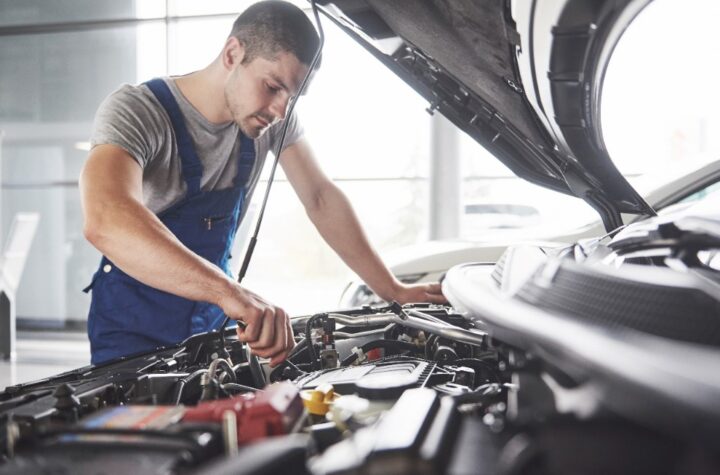
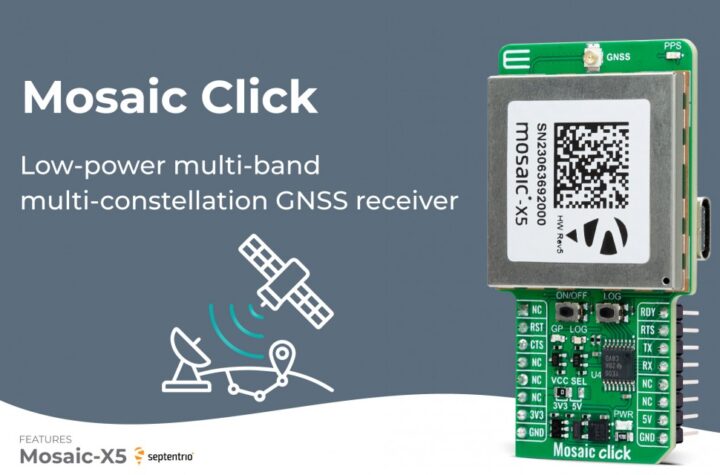
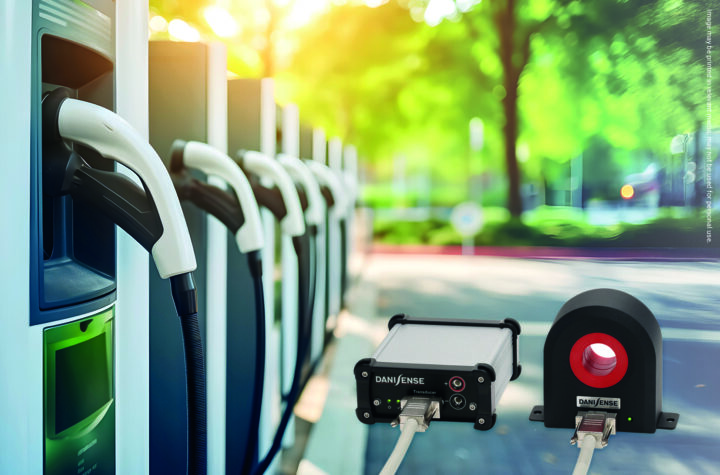
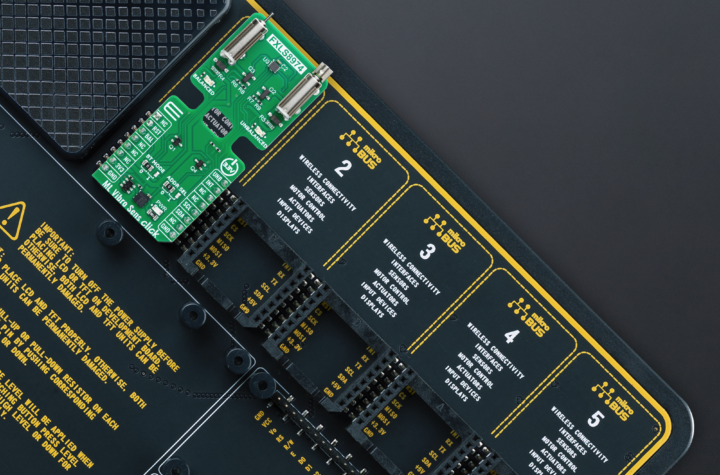
More Stories
Mosaic Click board from MIKROE delivers global coverage multi-band and multi-constellation tracking ability
Current transducer from Danisense selected for DC charging station testing device demonstrator at TU Graz
New Click board from MIKROE helps develop and train ML models for vibration analysis